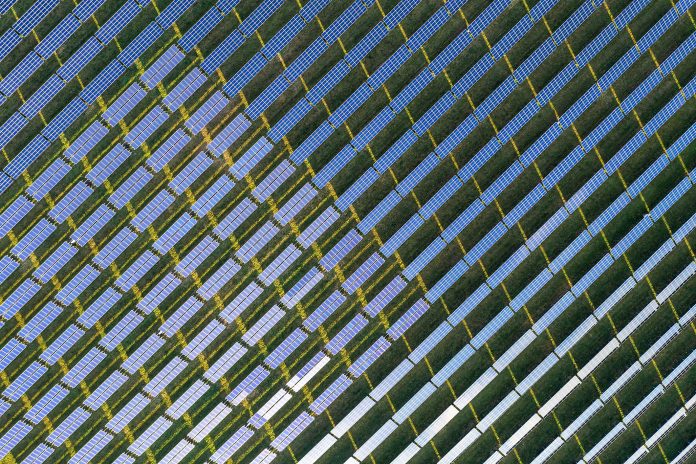Solar energy is an increasingly attractive option for those seeking to reduce their reliance on fossil fuels and move towards reaching net zero. Yet opinion remained divided at the recent Solar & Storage Live exhibition at London’s ExCeL, where several innovative technologies were on show
Although it was a prime opportunity to see in-person demonstrations of how beneficial solar can be and how far it has come in the last few years, opinion was still divided. While there are many opportunities in the solar and storage market, constraints remain for solar as a reliable source of renewable energy.
Is solar is going to help us reach net zero?
The key question remains—is solar going to help us reach net zero? Even though solar power has been growing steadily in the UK over the past decade, there are mixed views on whether this is the way forward. From electrifying the grid and the future cost of batteries within the current manufacturing landscape to whether the end-of-life systems for solar panels and battery storage are prepared for the demand net zero will bring, the answer remains elusive.
At the exhibition, there were several innovative technologies and manufacturers who showcased sustainability-conscious solar. DMEGC, for example, offers a certified carbon zero manufacturing process, along with being guaranteed PFAS-free. PFAS, otherwise known as forever chemicals, are currently not regulated, and therefore, solar manufacturers still use them in their products.
Another interesting piece of technology on display was the AirTurb wind turbine, which pairs with a solar solution for a sleek residential and commercial renewable energy solution. Combining wind and solar energy can enable round-the-clock energy production, and the unique design of the AirTurb turbine reduces the risk of light flicker and is suitable for rooftops and ground-level applications.
Can current electrical systems cope with the extra capacity of solar power?
Several of the start-up exhibitors discussed the idea that the grid system is currently unable to cope with the electrical capacity demanded by a solar-powered future.
Mark Howitt, United Nations expert advisor in energy transition, discussed the importance of grid inertia, something solar panels are unable to provide. Inertia in the grid refers to energy stored in heavy rotating generators, usually powered by steam or gas turbines. This stored energy helps stabilise the grid, preventing sudden changes in electricity consumption or production from causing electricity shortages. Howitt outlined the idea that our energy transition must be planned in a more strategic manner, as blindly replacing fossil fuel energy with renewables is costing the UK billions when trying to rebalance energy provided by inertia.
The proposed solution, along with a more strategic approach to fossil fuel replacement, is the prioritisation of heat networks. These networks will be able to provide a local source of inertia, supplemented by renewable energy production in the area.
The price of electrical storage
Aaron Wade, Head of Battery Costs at CRU, raised the point of whether the price of electricity storage, in the market’s current state, is even a viable option. He explained the unrivalled lead Chinese battery manufacturers have in the market. Currently, Chinese batteries are far superior in terms of technology and cost. However, even if the rest of the world continues to develop its battery storage technologies, China’s costs may remain unrivalled.
This is due to a combination of factors, including a significantly lower labour rate, access to raw materials, and production rate. Competing countries are taking different approaches. The United States, for example, is using a ‘carrot-based’ approach by providing tax credits to help bolster investments in the industry, whereas the EU uses the opposite approach.
Sustainable batteries and innovative tech
The EU applies sanctions on organisations that don’t adhere to sustainable battery regulations. These sanctions often make it difficult to create affordable battery technology in the EU, leaving China to continue its domination in the market.
Furthermore, the benefit of sourcing equipment locally is high. Today in the UK, Social Value is being integrated into all public sector procurements, and therefore the affordability of local battery storage manufacturers needs to increase.
The solar power and storage industry and its future
The solar and storage industry is at a critical juncture as the UK strives towards net zero. While innovative technologies like carbon-neutral manufacturing processes and hybrid solar-wind solutions offer promise, significant challenges remain. The grid’s inability to cope with increased electrical capacity from solar power, the importance of grid inertia, and the dominance of Chinese battery manufacturers in the global market all present hurdles to widespread adoption.
A more strategic approach to energy transition is crucial, considering factors such as grid stability and local heat networks. The affordability and sustainability of battery storage technologies also need to be addressed, with countries adopting various strategies to compete with China’s market dominance.
As the UK integrates Social Value into public sector procurements, the need for affordable local battery storage solutions becomes even more pressing. The industry must balance technological advancements with economic viability and environmental concerns, including end-of-life considerations for solar panels and batteries.
Achieving net zero
Ultimately, while solar power has made significant strides, its role in achieving net zero remains complex. A holistic approach considering grid infrastructure, energy storage, manufacturing processes, and long-term sustainability will be essential in determining solar’s place in the UK’s renewable energy future.











